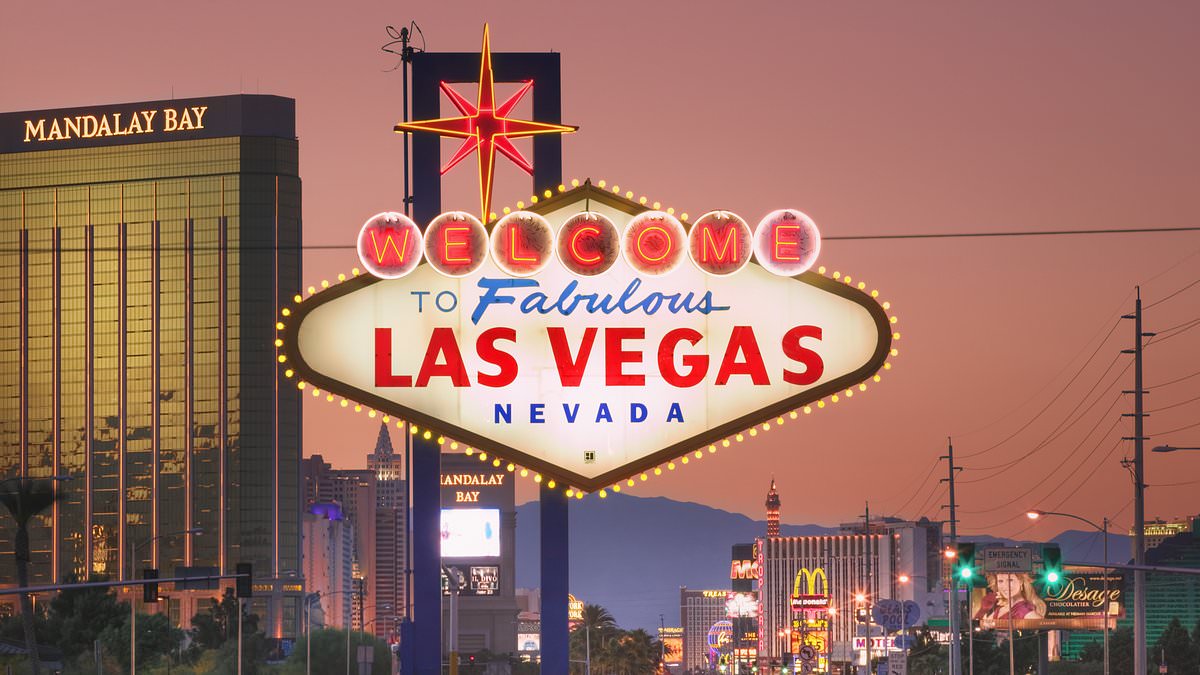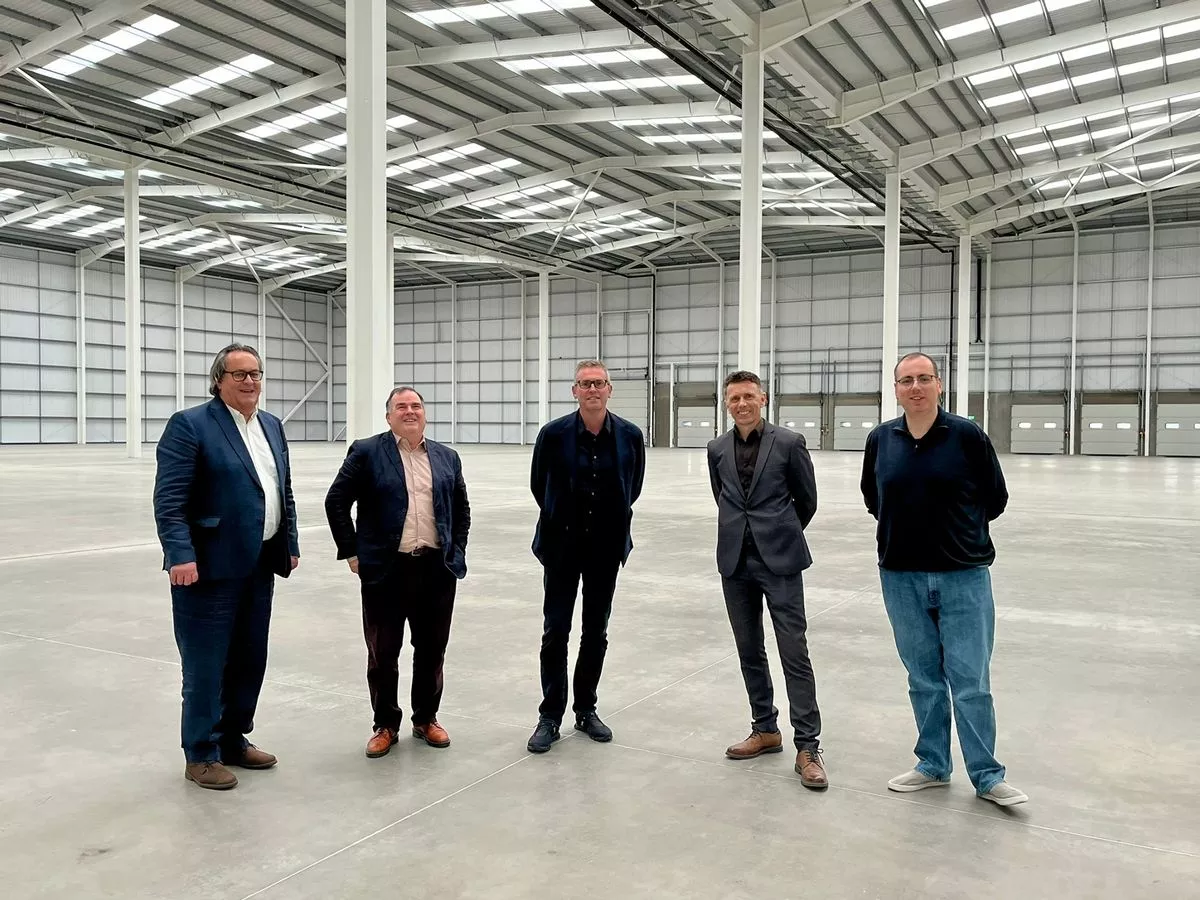Dying Las Vegas valley must build tens of thousands of new homes or say goodbye to the ‘American dream’
By Editor,Martha Williams
Copyright dailymail

Dying Las Vegas valley must build tens of thousands of new homes or say goodbye to the ‘American dream’
READ MORE: Midwest suburb gets $4B boost as Microsoft invests in city
By MARTHA WILLIAMS, US NEWS REPORTER
Published: 00:34 BST, 22 September 2025 | Updated: 00:34 BST, 22 September 2025
Las Vegas will have to build thousands of homes in order to fix its fast-growing housing crisis.
For the Las Vegas Valley to combat its housing shortage, approximately 58,100 homes need to be constructed, according to a new report.
‘Housing has long been a cornerstone of the American dream and the nation’s economy, but a supply–demand imbalance has pushed the U.S. market into crisis, driving up prices and limiting workforce mobility,’ said the report from the American Enterprise Institute and the US Chamber of Commerce.
Nevada as a whole is short approximately 81,000 homes, and the US overall may need anywhere from 4 to 8 million houses to fix the shortage issue.
But the housing crisis in Las Vegas goes beyond a shortage of homes.
Where there are homes on the market, buyers are nowhere to be seen. They have been sidelined by expensive prices, or put off by the downward direction Vegas is heading in.
Meanwhile, home prices are just below record highs, rents remain elevated and residential construction and sales have slowed in the city.
The valley is constrained by a lack of land to develop because the federal government controls most of it, while higher construction and labor costs have burdened homebuilders trying to fill the space.
Las Vegas will have to build thousands of homes in order to fix its fast-growing housing crisis
The Las Vegas Valley is constrained by a lack of land to develop because the federal government controls most of it
The report suggests four main ideas to build more homes in the valley, the first being to allow more flexibility with the size of new housing lots.
This means making it easier to build homes like townhouses and condos on smaller pieces of land. If this happens, the valley could get up to 18,600 new homes added.
‘From 2000 to 2024, 13 percent of new homes built in residential subdivisions in Las Vegas have been townhomes, a form that uses land more efficiently, requiring only 39 percent of the land needed for a typical detached home,’ the report states.
The second option is to split existing lots into smaller ones, adding up to 1,700 homes.
The third option is to allow housing on land currently zoned for commercial use, and the fourth is to make more public land available for residential development.
Las Vegas’s housing troubles are particularly worrying given the city’s dying tourism industry.
In fact, Las Vegas’s economy is in shambles.
Sin City’s economy relies heavily on tourism, and reports last month showed that the total number of visitors was down 7.3 percent over the first half of 2025.
Nevada as a whole is short approximately 81,000 homes
In Las Vegas, housing inventory has skyrocketed
In Las Vegas, home prices are just below record highs, rents remain elevated and residential construction and sales have slowed
The Las Vegas Convention and Visitors Authority says visitor volume to the city fell by 11.3 percent in June compared to the prior year.
Gaming revenue is up, indicating that people are still gambling. However, less people are splashing out on dining out, entertainment, and shopping.
Consumer spending was down millions of dollars over the last 11 months compared to the year before.
Nevada made almost $100 billion in revenue from tourists last year, most of which was attributed to visitor spending in Las Vegas.
The decline is also seen in falling hotel revenue, with the Las Vegas Strip’s 85.3 percent occupancy in May 2025 representing a 3.2 percent fall, according to data from the Center for Business and Economic Research (CBER).
Average room rates also declined to $198.20 in May and even further to $163.64 in June – an 11.3 percent drop from the prior year.
Las Vegas has been slammed for its ‘rip-off’ pricing in recent months, and soaring costs are likely a reason for the city’s dwindling tourism.
Earlier this month, the Daily Mail revealed that Las Vegas’s iconic Bellagio Hotel was charging its guests an extra $25 just to eat off plates.
Once regarded as a hub of extravagance and splurging, Las Vegas is becoming known for its ‘tackiness’ and ‘rip-off pricing’
The number of tourists coming to Las Vegas dropped for the seventh month straight in July (Pictured: The iconic Bellagio Hotel)
44 of the biggest 50 metros are flashing a grave warning that a house price crash is next
Guests at the opulent Italian-themed casino resort were informed that ordering room service incurs the additional fee if it is served on crockery.
Multiple businesses in the city are also being forced to shut due to dwindling tourism.
Servers say they’re suffering as high prices and declining tourism diminish their tip earnings across the Strip, according to Reddit’s r/VegasLocals forum, where one cocktail waitress wrote: ‘I used to average about 80 cents a drink. Now I’m averaging about 10 cents.’
The combination of increased tariffs, inflation rates, and high prices has prevented people from traveling to the notorious spending city.
Las Vegas has also shifted its reputation from a gambler’s paradise to a luxury enclave with soaring resort costs and expensive prices.
Michael Schoenberger, a professor of hospitality management, echoed this sentiment to Business Insider.
‘You’re starting to change the mentality of the visitor where they’re thinking, ‘Well, I could go to Las Vegas, but it’s going to be a pain in my neck, or I could go to Cancún”.
‘It’s a cumulative effect that’s just now starting to show up’.
Las VegasNevada
Share or comment on this article:
Dying Las Vegas valley must build tens of thousands of new homes or say goodbye to the ‘American dream’
Add comment



